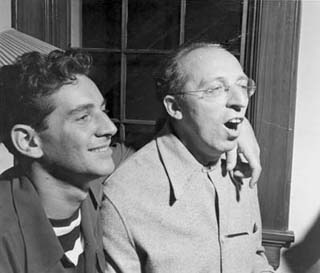Course Description
This subject covers a specific branch of music history: Western concert music of first sixty years of the twentieth century. Although we will be listening to and studying many pieces (most of the highest caliber) the goal of the course is not solely to build up a repertory of works in our memory (though that is indeed …
This subject covers a specific branch of music history: Western concert music of first sixty years of the twentieth century. Although we will be listening to and studying many pieces (most of the highest caliber) the goal of the course is not solely to build up a repertory of works in our memory (though that is indeed a goal). We will be most concerned with larger questions of continuity and change in music. We will also consider questions of reception, or historiography - that is, the creation of history and our perception of it. Why do we perceive much of this music, so much closer in time to us than Mozart or Beethoven, to be so foreign? Is this music aloof and separate from popular music of the twentieth century or is there a real connection (perhaps hidden)? The subject will continue to follow some topics of central interest to music before 1960, such as serialism and aleatory, beyond the 1960 cutoff. Conversely a few topics which get their start just before 1960 but which flourish later (minimalism, computer music) will be covered only in 21M.263.
Course Info
Instructor
Departments
Learning Resource Types
notes
Lecture Notes
assignment_turned_in
Written Assignments with Examples
assignment
Presentation Assignments

Conductor/composer Leonard Bernstein (left) with composer Aaron Copland at Bernardsville, NJ. August 1945. (Photo courtesy of Library of Congress, Music Division.)










